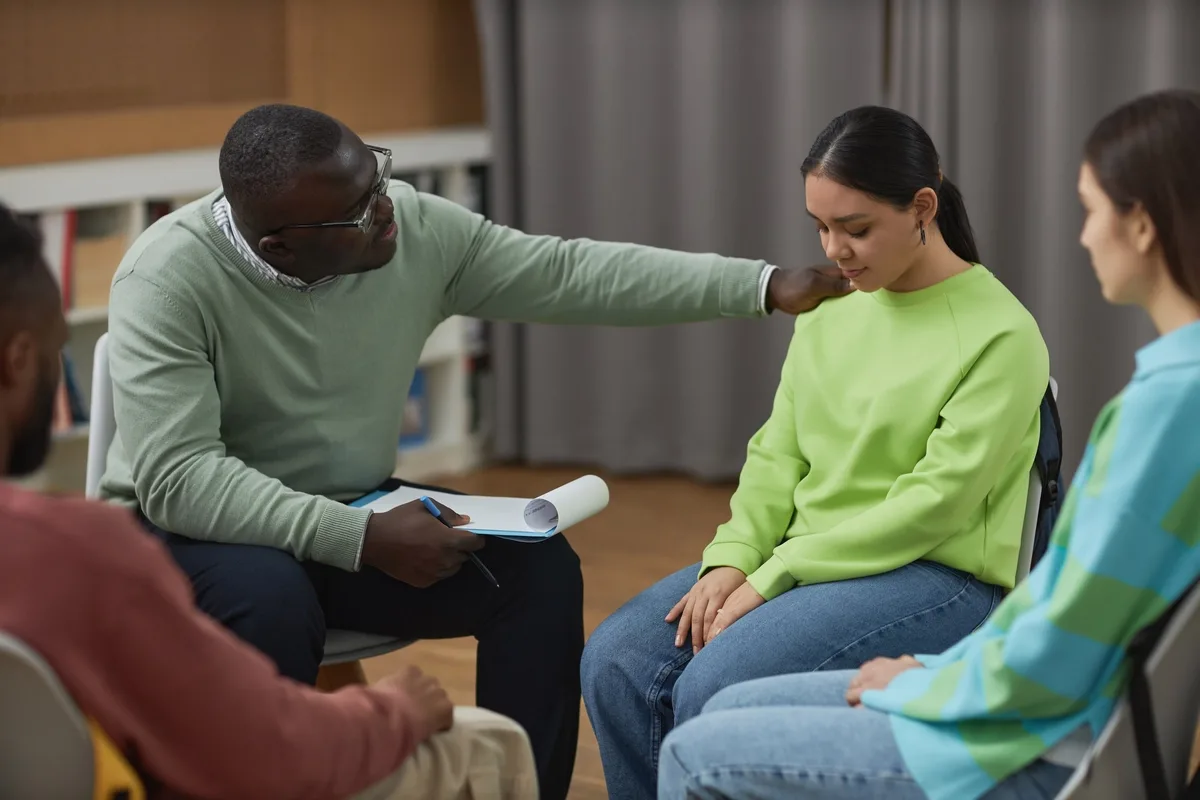24/7 Helpline:
(866) 899-221924/7 Helpline:
(866) 899-2219
Learn more about Pet friendly Rehab centers in Morton Grove
Pet friendly Rehab in Other Cities

Other Insurance Options

Humana

BHS | Behavioral Health Systems

Covered California

Providence

Cigna

UnitedHealth Group

Group Health Incorporated

Regence

Magellan

Medical Mutual of Ohio

Lucent

Highmark

WellCare Health Plans

Amerigroup

Meritain

Optum

United Health Care

Horizon Healthcare Service

Absolute Total Care

Ambetter









